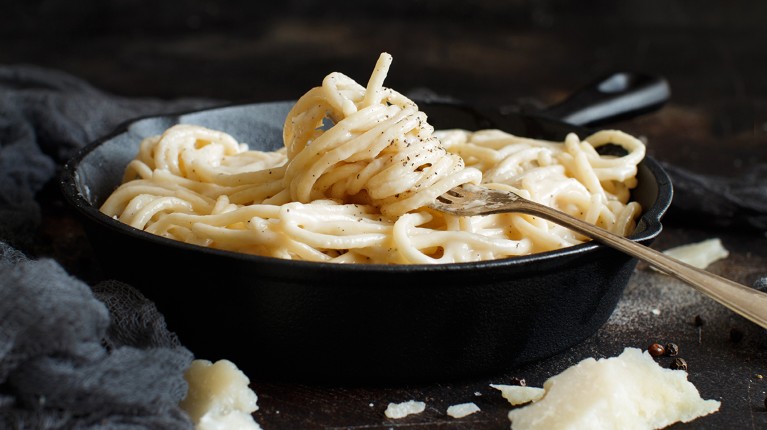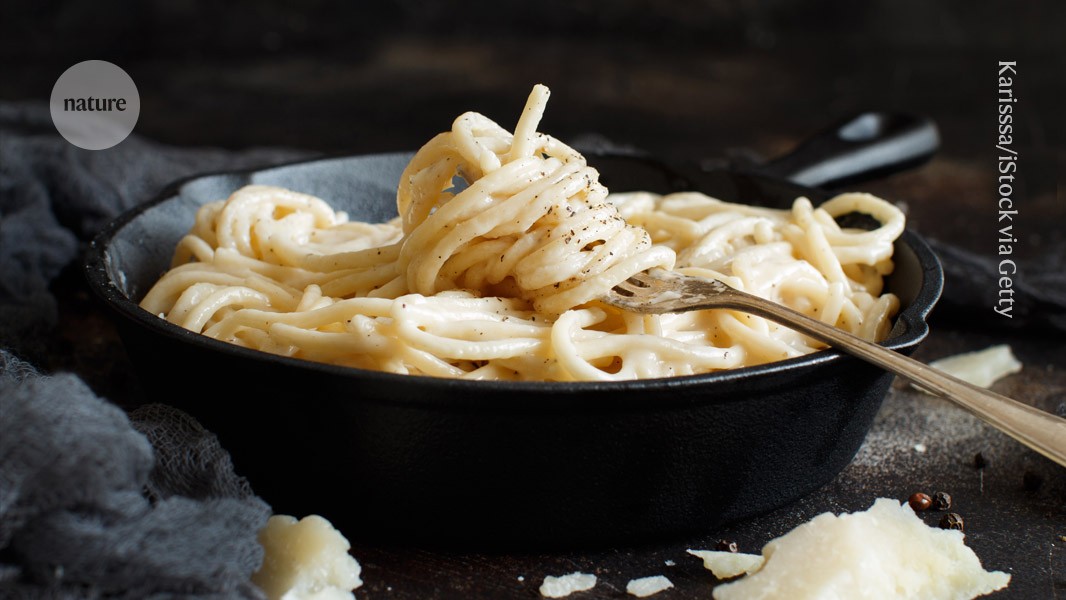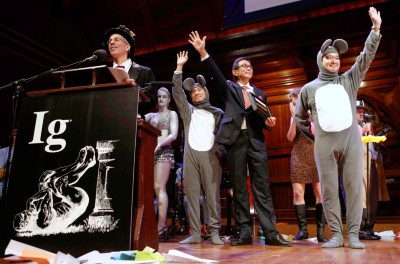
Physicists studied the phase transitions that occur while making the pasta dish cacio e pepe.Credit: Karisssa/iStock via Getty
Many scientists dream of winning a Nobel Prize, an accolade that brings worldwide recognition, prestige and a place in the pantheon of greatness alongside the likes of Albert Einstein, Marie Curie and Francis Crick. Then there are the other awards — the Ig Nobel prizes, which were devised to highlight research that makes people laugh, then think.
Highlights of this year’s Ig Nobel recipients include a nutrition prize for studying the preferred pizza toppings of rainbow lizards at a seaside resort in Togo1 (their favourite is four cheese), and a physics award for figuring out how to prepare the perfect cacio e pepe2 — a pasta dish made with grated pecorino romano cheese and black pepper that is surprisingly hard to get right (see ‘The 2025 Ig Nobel prizewinners in full’).
“For us, this represents the greatest award to creativity in science,” says Giacomo Bartolucci, a physicist at the University of Barcelona in Spain, who was a co-author on the cacio e pepe study. His team investigated the phase transitions that can cause the sauce to clump up and uncovered a recipe with consistently delicious results. “The goal was both to satisfy our curiosity and to frame the problem in physical terms, showing that even everyday frustrations like a failed pasta dish can be linked to interesting scientific problems,” says Bartolucci.
Celebrating silliness
The Ig Nobels were founded in 1991 by Marc Abrahams, editor of satirical magazine Annals of Improbable Research. Previous winners have included the discovery that orgasm can be an effective nasal decongestant3, the levitation of live frogs using magnets4 and research on necrophilia in ducks5.
In the prize’s early days, receiving one was deemed silly or even insulting by some people. Abrahams says that Robert May, the chief scientific adviser to the UK Government from 1995 to 2000, once wrote him an angry letter demanding that they stopped giving Ig Nobel prizes to British scientists.
But many have come to see the Ig Nobels as career-changing in their own right.
“When we first got the phone call about winning an Ig Nobel, we honestly thought it was a prank. Once we realized it was real, we were thrilled and genuinely honored,” says Fritz Renner, a psychologist at the University of Freiburg in Germany and a winner of this year’s peace prize for work showing that drinking alcohol can improve your ability to speak in a foreign language6.
How a silly science prize changed my career
“It all started out at an international conference in Vienna,” he says of the research. “We had some drinks with colleagues at a bar at the end of a long conference day. Someone was joking that their English — to them a foreign language — was getting better with a drink.”
The discussion ultimately led to a study showing that people are more impressed by your ability to speak another language after you’ve had a small amount of booze. However, Renner stresses that “we do not encourage anybody to use alcohol as a learning tool or to ditch language classes in favour of a drink”.
Continuing the theme of tipsiness, there was an aviation prize for a study on how alcohol can impair bats’ ability to fly and echolocate7, which explains why the animals tend to avoid eating fermented fruit.



